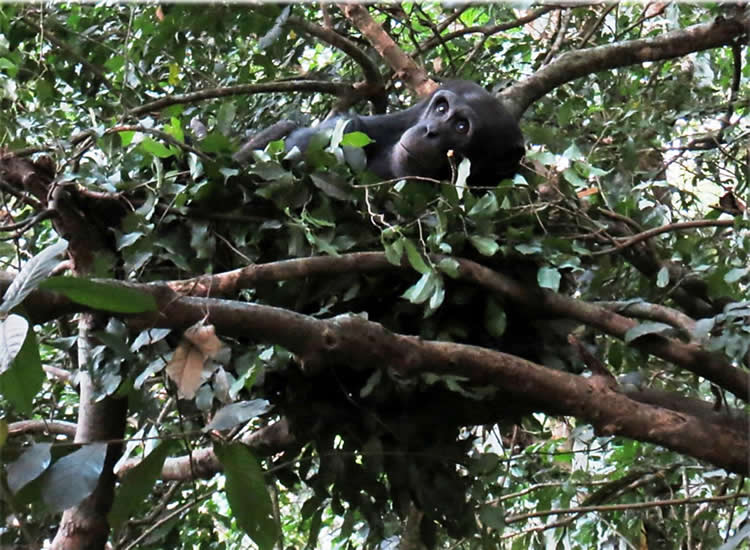Humans sleep shorter, deeper than our closest animal relatives.
Insomniacs take heart: Humans get by on significantly less sleep than our closest animal relatives. The secret, according to a new study, is that our sleep is more efficient.
Researchers from Duke University scoured the scientific literature and compiled a database of slumber patterns across hundreds of mammals including 21 species of primates — from baboons and lemurs to orangutans, chimpanzees and people. They then used statistical techniques to account for each species’ position in the primate family tree.
They found that humans are exceptionally short sleepers — getting by on an average of seven hours of sleep a night, whereas other primate species, such as southern pig-tailed macaques and gray mouse lemurs, need as many as 14 to 17 hours.
What’s more, our sleep tends to be more efficient, meaning we spend a smaller proportion of time in light stages of sleep, and more of our sleep time in deeper stages of sleep. A dream state called rapid eye movement sleep, or REM, for example, makes up nearly 25 percent of our overall sleep. But in primates such as mouse lemurs, mongoose lemurs and African green monkeys, REM sleep barely climbs above five percent.
“Humans are unique in having shorter, higher quality sleep,” said anthropologist and study co-author David Samson of Duke, who logged nearly 2,000 hours watching orangutans in REM and non-REM sleep as part of his dissertation research prior to coming to Duke.
The human sleep gap isn’t merely the result of round-the-clock access to artificial light from streetlamps and computer screens, the researchers say. A separate study of the sleep habits of people living in three hunter-gatherer societies without electricity in Tanzania, Namibia and Bolivia found they get slightly less shut-eye than those of us with electronic gadgets.
If artificial light and other aspects of modern life were solely responsible for shortening our sleep, we’d expect hunter-gatherer societies without access to electricity to sleep more, Samson said.
Rather, the study by Samson and Duke anthropologist Charlie Nunn suggests that humans replaced sleep quantity with sleep quality long before the glare of smartphones came to be.
The researchers attribute the shift towards shorter, more efficient sleep in part to the transition from sleeping in “beds” in the trees, as our early human ancestors probably did, to sleeping on the ground as we do today.

Once on the ground, Samson said, early humans likely started sleeping near fire and in larger groups in order to keep warm and ward off predators such as leopards and hyenas — habits which could have enabled our ancestors to get the most out of their sleep in the shortest time possible.
Shorter sleep also freed up time that could be devoted to other things, like learning new skills and forging social bonds, while deeper sleep helped to cement those skills, sharpen memory and boost brainpower, Samson said.
Funding: This research was supported by grants from the National Science Foundation (BCS-1355902) and Duke University.
Source: Robin Ann Smith – Duke
Image Credit: The image is credited to Kathelijne Koops, University of Zurich, Switzerland.
Original Research: Abstract for “Sleep intensity and the evolution of human cognition” by David R. Samson and Charles L. Nunn in Evolutionary Anthropology. Published online December 12 2015 doi:10.1002/evan.21464
Abstract
Sleep intensity and the evolution of human cognition
Over the past four decades, scientists have made substantial progress in understanding the evolution of sleep patterns across the Tree of Life.[1, 2] Remarkably, the specifics of sleep along the human lineage have been slow to emerge. This is surprising, given our unique mental and behavioral capacity and the importance of sleep for individual cognitive performance.[3-5] One view is that our species’ sleep architecture is in accord with patterns documented in other mammals.[6] We promote an alternative view, that human sleep is highly derived relative to that of other primates. Based on new and existing evidence, we specifically propose that humans are more efficient in their sleep patterns than are other primates, and that human sleep is shorter, deeper, and exhibits a higher proportion of REM than expected. Thus, we propose the sleep intensity hypothesis: Early humans experienced selective pressure to fulfill sleep needs in the shortest time possible. Several factors likely served as selective pressures for more efficient sleep, including increased predation risk in terrestrial environments, threats from intergroup conflict, and benefits arising from increased social interaction. Less sleep would enable longer active periods in which to acquire and transmit new skills and knowledge, while deeper sleep may be critical for the consolidation of those skills, leading to enhanced cognitive abilities in early humans.
“Sleep intensity and the evolution of human cognition” by David R. Samson and Charles L. Nunn in Evolutionary Anthropology. Published online December 12 2015 doi:10.1002/evan.21464






